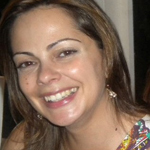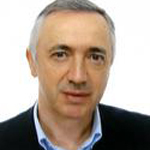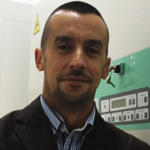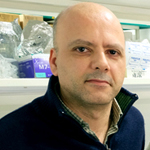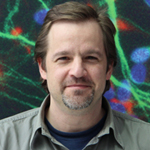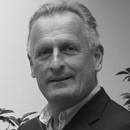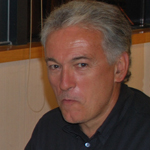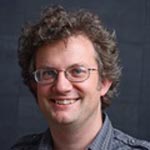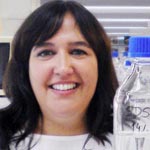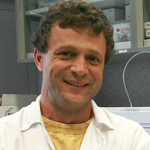XIV MEETING OF THE
PORTUGUESE SOCIETY FOR NEUROSCIENCE
4-5 JUNE 2015 | AXIS VERMAR HOTEL | PÓVOA DE VARZIM | PORTUGAL
INVITED SPEAKERS


|
Ana Cristina Rego Ana Cristina Rego (Ph.D.) is tenure Assistant Professor since 1999, lecturing classes of Biochemistry, Neuroscience and Neurobiology, at the Faculty of Medicine, University of Coimbra (UC), where she initiated as Teaching Assistant in 1997 and received the 'Agregação' degree in 2010. She is also head of the research group ‘Mitochondrial Dysfunction and Signaling in Neurodegeneration’ at the CNC-Center for Neuroscience and Cell Biology (CNC), at UC, since 2003. AC Rego received the Master in Cell Biology in 1994 and the Ph.D. in Cell Biology in 1999 at UC, under the supervision of Prof. Catarina R. Oliveira, and was postdoctoral researcher in the lab of Prof. David G. Nicholls, at the University of Dundee, Scotland, UK, and at the Buck Institute, Novato, CA, USA, from 1998-2000. In 2004 and 2005 AC Rego was the coordinator of the BEB PhD Programme at CNC. AC Rego investigates molecular mechanisms of familial and age-related neurodegenerative disorders, including Huntington’s and Alzheimer’s diseases, focusing on glutamatergic postsynaptic dysfunction, the role of lysine deacetylases on mitochondrial function, and modified neurogenesis. Funding has been garnered by HighQ Foundation (USA), Lundbeck Foundation, ‘Instituto de Investigação Interdisciplinar’ (IIIUC), Faculty of Medicine-UC, ‘Fundação para a Ciência e a Tecnologia’ (FCT), ‘Santa Casa da Misericórdia de Lisboa’ (SCML), and ‘Fundação Luso Americana para o Desenvolvimento’ (FLAD) projects or prizes. AC Rego holds an H factor of 32 and more than 3300 citations, published 94 original and review articles, 12 book chapters and more than 100 abstracts in research meetings, and is a member of the board of the ‘Sociedade Portuguesa de Neurociências’ (SPN) since 2007. AC Rego also supervised/co-supervised the work of several post-docs, 13 Ph.D. students and 20 Master students (concluded degrees).
|
|
|
Ana Paula Silva Ana Paula Silva obtained her B.Sc. degree in Biology in July 1998 at the Faculty of Sciences and Technology, University of Coimbra, and in January 2003 she obtained her doctorate degree in Cellular Biology at the same University. During her PhD, Ana Paula Silva worked at the Center for Neuroscience and Cell Biology (CNC), Coimbra, and at the Anatomy and Neurobiology Department, Odense University, Denmark, in a project entitled “Neurotoxicity and neuroprotection in the hippocampus: role of neuropeptide Y receptors”. During this period she received an Award from Fundação Calouste Gulbenkian and an Honour Mention from Fundação Professor Francisco Pulido Valente. Afterwards, Ana Paula Silva started working as a postdoctoral research fellow at the CNC and at the Neuropharmacology Laboratory, Faculty of Health and Life Sciences, University Pompeu Fabra, Barcelona, Spain. On August 2005, she got a research position at the Institute of Pharmacology and Experimental Therapeutics, Faculty of Medicine, University of Coimbra, and moved to the Institute for Biomedical Imaging and Life Sciences (IBILI), being currently also the coordinator of the Research Support Office at the same Faculty. Her current research is focused on the neurotoxic effects triggered by psychostimulants, with particular attention to blood-brain barrier alterations induced by methamphetamine and methylphenidate. |
|
|
AntÓnio Cuadrado Antonio Cuadrado, obtained his PhD degree in 1985 and enjoyed several postdoctoral stays in the National Cancer Institute-NIH with the help of Fulbright and Fogarty fellowships. He established his independent laboratory as Professor of Biochemistry in 1997 at the Department of Biochemistry, Faculty of Medicine of Autonomous University of Madrid. His main interest is the study of molecular mechanisms involved in initiation and progression of neurodegenerative diseases. For the past 10 years his main lane of research has been the validation of transcription factor Nrf2, master regulator of cell homeostasis, in protection against oxidative, inflammatory and proteopatic stress in Parkinson’s and Alzheimer’s disease. He is full professor of Biochemistry and Deputy Director of the Institute of Biomedical Research “Alberto Sols” UAM-CSIC. He has published over 100 peer reviewed articles, several book chapters and reviews. |
|
|
AntÓnio Salgado António Salgado PhD is a biologist and received is PhD in Materials Science and Engineering- Tissue Engineering and Hybrid Materials, from the University of Minho in 2005. Currently he is a PrincipaI Investigator at the Life and Health Sciences Research Institute (ICVS), School of Health Sciences, University of Minho. His research interests are focused on the development of innovative therapies for CNS repair. His main areas of research are: 1) Development of ECM like hydrogels for the transplantation of Mesenchymal Stem Cells into the injured CNS; 2) Role of the secretome of MSCs in neuroprotection and repair and 3) Modulation of MSCs secretome through bioreactor based approaches. He is currently an author of 57 papers in international peer reviewed journals (h-Index=18). He serves as a Biomaterials Editor for Biomed Research International and is an Associate Editor for Biochimie. In 2008 he received the Gulbenkian Award on Cutting Edge Research in Life Sciences, for his project focused on unveiling the neuroregulatory molecules present in the secretome of mesenchymal stem cells. More recently, in 2013, he received the Prize Melo e Castro for Spinal Cord Injury Research, awarded by the Santa Casa de Misericórida de Lisboa. |
|
|
Diogo Castro Diogo S. Castro has received his PhD from the Karolinska Institute (Stockholm, Sweden), and performed post-doctoral studies at the MRC National Institute for Medical Research (London, UK) with François Guillemot. He started his own research group at Instituto Gulbenkian de Ciência (Oeiras, Portugal) in 2011, where he is a Principal Investigator sponsored by the FCT investigator programme. He has since long been interested in understanding how global programs of gene expression are regulated during neural development and disease. His research focuses on the function of transcriptional networks in vertebrate neurogenesis, in particular those of proneural transcription factors of the bHLH family. |
|
 |
Dora Brites Dora Brites was graduated in Pharmacy by the Universidade de Lisboa (FF/ULisboa) in 1976 and received her PhD degree in 1988. |
|
Dora Brites is Senior Researcher and Invited Full Professor at FF/ULisboa and Group Leader of Neuron Glia Biology in Health and Disease unit of the Research Institute for Medicines. She was recently awarded with the prize Edgar Cruz e Silva from the GEECD Aging group. She is Professor of Physiopathology of Neuroinflammation and of Histology and Embriology in Master Courses. She is member of the Coordinator Council and Executive Director of Mind-Brain College at ULisboa, Member of the Directive Board of the Doctoral Program in Integrative Neuroscience at the Faculty of Medicine-ULisboa and Member of the Mentorship Advisory Committee of the Doctoral i3DU Programme in Medicines and Pharmaceutical Innovation at FF/ULisboa. Dora Brites has authored and co-authored more than 100 refereed publications and book chapters. |
||
|
Federico Calegari Federico Calegari studied regulated exocytosis in hippocampal astrocytes in the laboratory of Patrizia Rosa, Milan. He then moved to the group of Wieland Huttner in the newly founded Max Planck Institute in Dresden. There he studied mammalian brain development, in particular the role of the cell cycle in neural stem cell commitment to neurogenesis. His studies continued as a group leader and then professor at the Center for Regenerative Therapies of the Technishe Universitat Dresden. His goal is to manipulate somatic stem cells as a means to control brain formation and function. |
|
|
HANS MEISEL |
|
In 1998 HJ. Meisel was appointed to the Berufsgenossenschaftliche Clinic in Bergmannstrost Halle/Saale as Director of the Clinic for Neurosurgery. Every year his team of 10 surgeons carries out a minimum of 1800 surgeries in the area of cerebral and spinal diseases. |
||
|
Jose R Naranjo Jose R Naranjo, PhD in Medicinal Chemistry (1983), did his post-doctoral research in the USA (NIMH and Georgetown University) and France (IGBMC, Strasbourg) and was appointed as Staff Scientist at C.S.I.C. in 1986. EMBO Member since 2000, he was Director of the National Center for Biotechnology-C.S.I.C and Deputy Vice President for Scientific Programming at C.S.I.C. His research is focused on the molecular mechanisms controlling activity-dependent gene expression in physiological and pathological conditions. He is serving as Receiving Editor for JBC and is a member of several Advisory Committees and Reviewing Panels. He has published more than 100 pier-reviewed papers. |
|
|
Michael Orger Michael Orger received his PhD in Neuroscience in 2005 from the University of California, San Francisco, and subsequently conducted his postdoctoral research as a Helen Hay Whitney fellow at Harvard University. Since 2010, he is a Principal Investigator in the Champalimaud Neuroscience Programme in Lisbon. His lab’s interest is in how the brain integrates sensory information and selects and executes appropriate actions, using innate visually guided behaviours in larval zebrafish as a model. These small transparent vertebrates are an ideal system to apply optical techniques to non-invasively record and manipulate neural activity. His lab’s approach has three main components: quantitative analysis of behaviour; imaging of whole-brain neural activity dynamics at single-cell resolution in behaving animals using 2-photon and light-sheet microscopy and development of genetic tools that allow specific targeting and manipulation of identified cell types. |
|
|
Miguel Castelo Branco Miguel Castelo Branco (MD PhD) is the Scientific Coordinator of IBILI, a leading Vision Research Institute in Portugal and is the Scientific Coordinator of the National Functional Brain Imaging Scientific initiative. He is also the Director of ICNAS, the Medical Imaging Infrastructure at the University of Coimbra. Under his leadership IBILI was classified as an Excellent Research Unit by international evaluation panels. IBILI has now joined the CNC.IBILI consortium.
He obtained his PhD at the Max-Planck Institute for Brain research, Frankfurt, Germany and is now Associate Professor at the University of Coimbra. He has held a Professorship in Psychology in 2000 at the University of Maastricht, the Netherlands. Before, he was a Postdoctoral fellow at the Max-Planck-Institute for Brain Research, Germany where he had also performed his PhD work (1994-1999). His achievements are well reflected in publications in top General Journals, such as Nature and PNAS and Top Clinical Translational research journals such as Journal of Clinical Investigation, Brain, Human Molecular Genetics) as well as others in the field of Vision Research (Investigative Ophthalmology and Visual Sciences, Journal of Vision, Vision Research Archives of Ophthalmology), Human Neurophysiology and Neuroscience (The Journal of Neuroscience, The Journal of Neurophysiology, Human Brain Mapping, Neuroimage, Cerebral Cortex, Neuron and others). |
|
|
Patricia Maciel Professor Patricia Maciel graduated in Biochemistry from the University of Porto in 1993 and completed her PhD in Biomedical Sciences (Genetics) in 1998, with work developed at McGill University, Canada. The goal of her research is to understand the genetic basis of nervous system function and dysfunction, with a strong focus on human neurological disease, using molecular genetics, genomics, transcriptomics, proteomics, cell biology and behavioral analysis. Her team at the University of Minho studies neurodegenerative disorders, such as Machado-Joseph disease, and neurodevelopmental disorders, including intellectual disability, autism spectrum disorders and epilepsy. The disease models they develop in C. elegans and mouse are used to not only to understand pathogenic mechanisms, but also to search for therapeutic targets and test the efficacy of therapeutic strategies. A strong focus of interest of the lab is the role of the ubiquitin proteasome system and of chromatin remodeling in neuronal function and dysfunction. |
|
|
Rafael Maldonado Dr Maldonado carried out his research for 11 years in France and the USA. Since 2000, he has been a professor of pharmacology at the University Pompeu Fabra, Barcelona, Spain, where he founded the Laboratory of Neuropharmacology, with 33 people under his direction. Dr Maldonado’s research is focused on the study of the neurochemical basis of drug dependence and related disorders, including affective, pain, and eating disorders, with a particular focus on the development of novel behavioural models. He has published more than 235 scientific articles (H Index 52) in international journals and has been the principal investigator for 25 years of research grants funded by the main Spanish, European, and American agencies. Dr Maldonad is also a reviewer for or member of the editorial board of several scientific journals. He has collaborated with public authorities and private companies in the research policy and pharmaceuticals development on novel treatments for drug abuse and pain. |
|
Rua do Campo Alegre, 823, 4150-180 Porto - Portugal
Tel +351 226 074 900 . Email: RITA.MATOS@ibmc.up.pt
